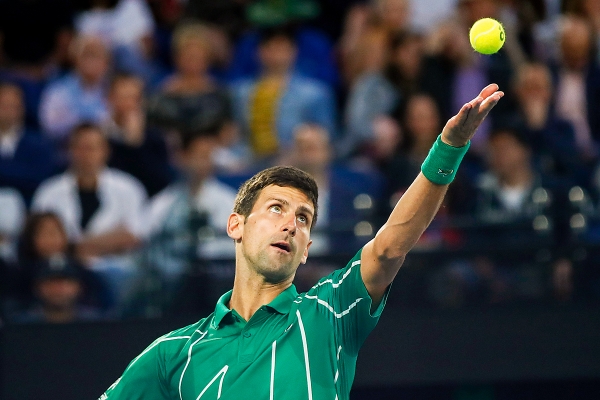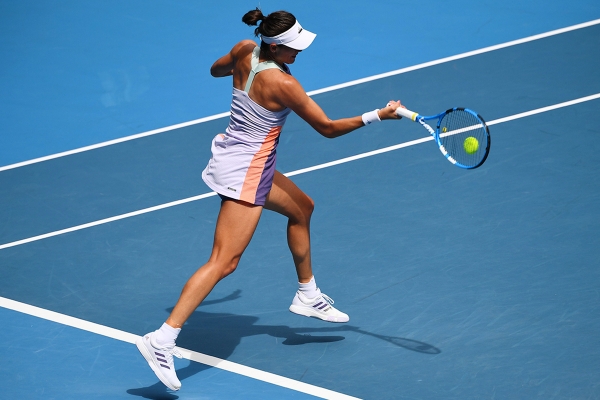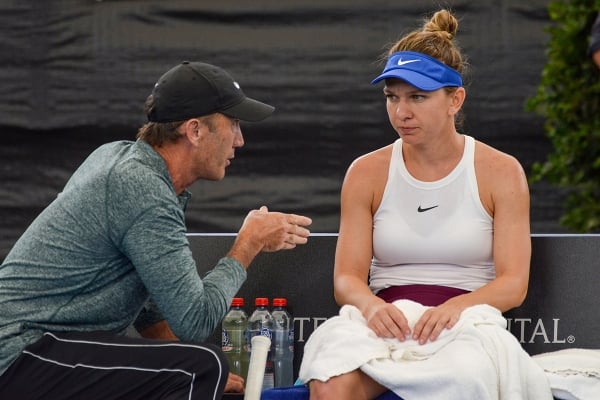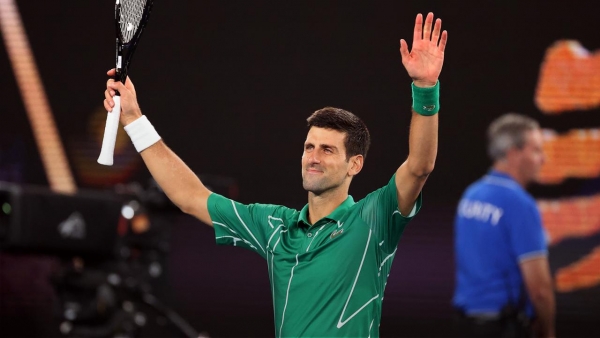Novak Djokovic. Garbine Muguruza. Simona Halep.
Each has won multiple Grand Slams. Each has rejected complacency and, instead, hit the refresh button in their search for the ultimate formula for success. It’s an acceptance of innovation that’s proving its worth, with each player achieving deep runs at Australian Open 2020.
Croatian former World No.2 Goran Ivanisevic, who began working with Djokovic in mid-2019, has taken a uniquely old-school, straightforward approach with his charge, one that’s inspired by his own days as a professional tennis player.
Instead of bombarding a player with information regarding their own stroke percentages and point constructions, as well as that of their myriad opponents, Ivanisevic believes focusing on the basics is a way to reduce stress.
“We're coming to [an] era that is all about statistics, all this and that. I don't like that,” he said, adding that players can be dragged down by the details.
“Sometimes you forget what you have to do on the court.”
MORE: Novak heaps more misery on Milos
Data isn’t a priority for Ivanisevic, who reached the quarterfinals in Melbourne in 1989, 1994 and 1997.
“Who cares how [he] served three years ago, where, how, why?” mused the 48 year-old, who shares Djokovic’s coaching duties with Marian Vajda.
“I don’t care what the other guy does. Just need for [the] player that I coach to do what we agree,” he added, recognising that most top players have existing understandings of each other’s games, having played against or practiced with each other on multiple occasions.

Djokovic’s camp split ways with data-focused strategist Craig O’Shannessy before this tournament, and Team Djokovic is making other changes, too.
“He is the guy who wants to improve every day. He's not afraid for improvements. He's not afraid to ask. He wants to be better,” Ivanisevic said, giving credit to Djokovic’s compatriots in the ‘Big Three’, Roger Federer and Rafael Nadal, for their similar desire to enhance their own games, demonstrated by their change of a racquet and service motion respectively.
Ivanisevic said Djokovic has focused on increasing his second serve speed to around the 180-190km/h mark. So far this tournament, his fastest second serves have hovered around this range, but the average is closer to 170km/h.
The Serbian, who has lifted the Norman Brookes Challenge Cup a record seven times, also made the decision to play the inaugural ATP Cup as a lead-up event before making the trip to Melbourne. In the final, he carried Serbia to a crucial 3-2 win over Spain, defeating longtime rival and world No.1 Nadal in the process.
Ivanisevic said the new event provided Djokovic with a resurgence in confidence for his Australian Open title chase. The Croat asserted that his pupil didn’t show up mentally in his 2019 season-ending straight-sets loss to Federer at the ATP Finals in London.
“The ATP Cup really lifted him … he needed that positive energy,” Ivanisevic said. “You [can] see that he's playing every match better and better here.”
As for Muguruza, who is playing inspired tennis in Melbourne under the guidance of countrywoman Conchita Martinez, a decision to change up recent patterns to rely on a net game that led her to the 2016 Roland Garros title has been paying dividends.

“I feel like [the] pre-season was very, very good. There was a lot of time actually to work on things that were needed, [and] I think the results are here,” said Martinez.
Elaborating further, the 1998 Australian Open finalist said that Muguruza is “very, very aggressive”, and has unlocked the recipe to her best tennis.
“She’s getting to balls early enough, you can see she's holding her ground really well, accelerating [and] finishing at the net a lot.”
Indeed she is. The Spaniard won 86 per cent (24 of 28) points at the net in her second-round win over Australian Ajla Tomljanovic. She then backed that up with success of 88 per cent and 80 per cent at net in her following two victories over fifth seed Elina Svitolina and ninth seed Kiki Bertens respectively.
MORE: Muguruza to face Pavlyuchenkova, former coach
Martinez feels Muguruza’s improved groundstrokes have facilitated her renewed confidence in her net game.
“I think by now she feels comfortable from the baseline, she can build up to the net many times,” she said.
As for Halep, consciously changing how she copes with stress has been key to winning in Melbourne and elsewhere, co-coach Daren Cahill said this week.

“She's still as stressed on the court as she always is, but she's learning ways to deal with it and to handle it,” said the Australian. Cahill added that he’s proud of the Romanian’s relatively new-found resilience when a match isn’t going her way.
True to form, although Halep has conceded a total of nine breaks of serve in the tournament’s first four rounds, she’s bounced back to break her opponents a combined 20 times. And she’s yet to drop a set.
MORE: ‘Family’ matters for hopeful Halep
Cahill believes the world No.3’s stronger mindset – well and truly on display this fortnight – comes from another innovation: understanding her sense of purpose.
“This is what she really wants to do and this is what she wouldn't want to be in any other place in the world,” he said.
“She loves the competition, she loves the fight.”
